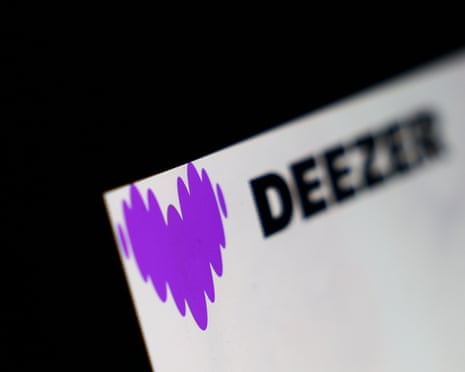Report Reveals Up to 70% of AI-Generated Music Streams on Deezer are Fraudulent
According to Deezer, a French streaming platform, as many as 70% of streams for music generated by artificial intelligence may be fraudulent. The company reported that AI-produced music comprises only 0.5% of the total streams on its platform, but its investigation indicates that fraudsters are responsible for a significant portion of these plays.
This issue of AI-generated music is increasingly evident on streaming platforms. Typically, fraudsters exploit bots to artificially inflate the number of listens for AI-created songs, thus gaining access to substantial royalty payments as these accumulations expand across numerous tracks. This strategy aims to bypass detection systems, which are often triggered by unusually high play counts for a limited number of fake tracks.
Thibault Roucou, Deezer’s director of royalties and reporting, noted that the manipulation of AI-generated music is primarily a tactic to “earn revenue from royalties.” He remarked, “As long as there is profit potential in fraudulent streaming, there will unfortunately be attempts to exploit it.” To combat this problem, he emphasized the platform’s commitment to proactive measures in addressing these fraudulent activities, recognizing that it is an ongoing challenge.
To counter fraud, Deezer utilizes a tool designed to identify 100% AI-generated content from prominent AI music models like Suno and Udio. The AI-generated tracks identified by these fraudsters range from imitation pop and rap to artificial ambient music. Deezer blocks royalty payments for streams classified as fraudulent.
In April, Deezer revealed that AI-generated music now makes up 18% of all uploads to its platform, which equates to approximately 20,000 new tracks daily. Additionally, the company stated that it is removing all completely AI-generated content from its algorithmic recommendations. With over 10 million subscribers, Deezer stands in contrast to market leader Spotify, which boasts 268 million users.
While Roucou could not pinpoint the individuals behind these fraudulent streams, he suggested that their operations appear to be organized. The global streaming market was valued at $20.4 billion last year, according to the IFPI, presenting a lucrative target for fraudsters. The IFPI’s recent global music report indicated that fraudulent streaming diverts funds away from legitimate artists and highlighted how generative AI has significantly worsened the situation.
In a notable case from last year, a musician from the US named Michael Smith was charged for orchestrating a scheme that involved creating hundreds of thousands of AI-generated tracks, which were streamed billions of times, resulting in $10 million in royalty payments.







